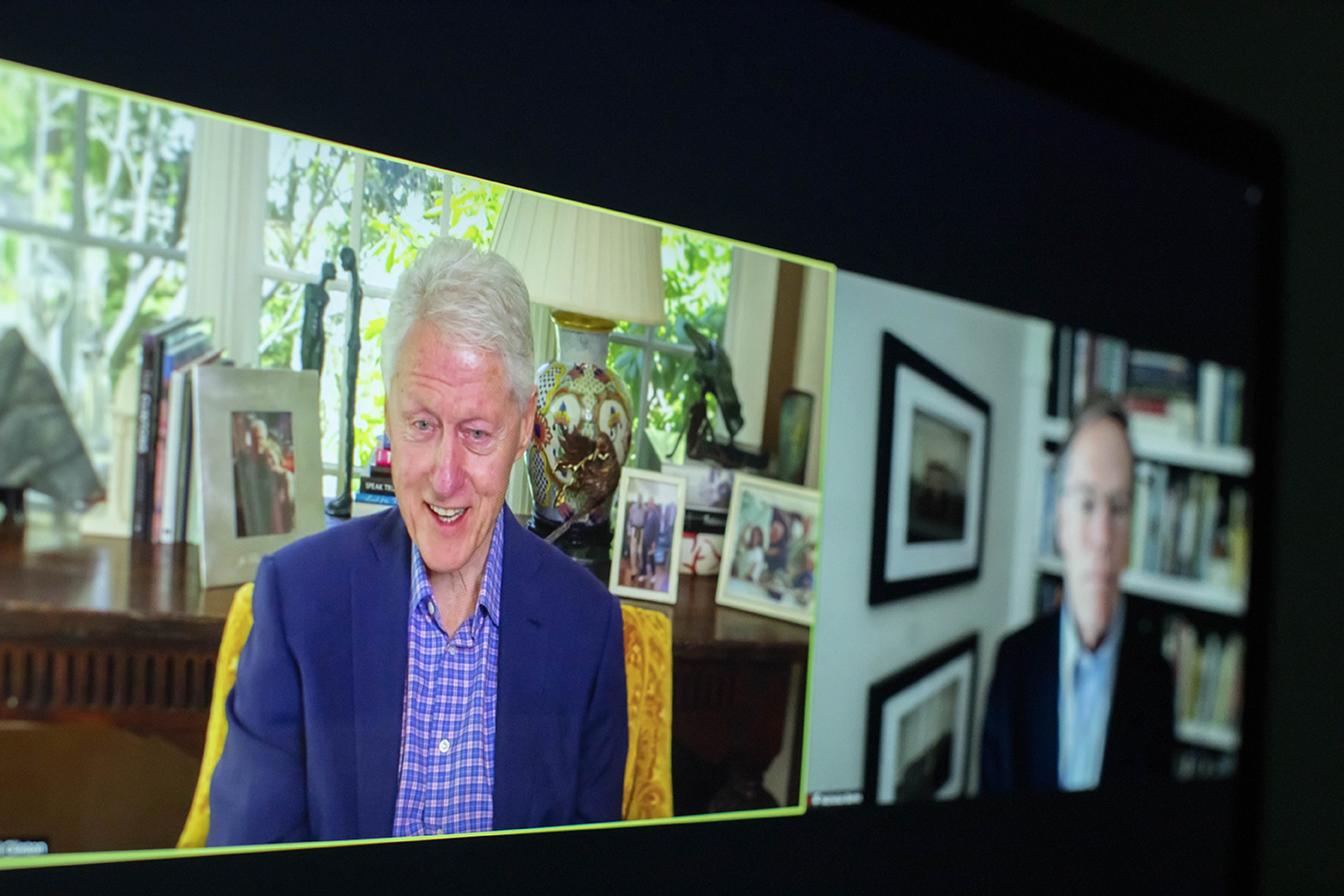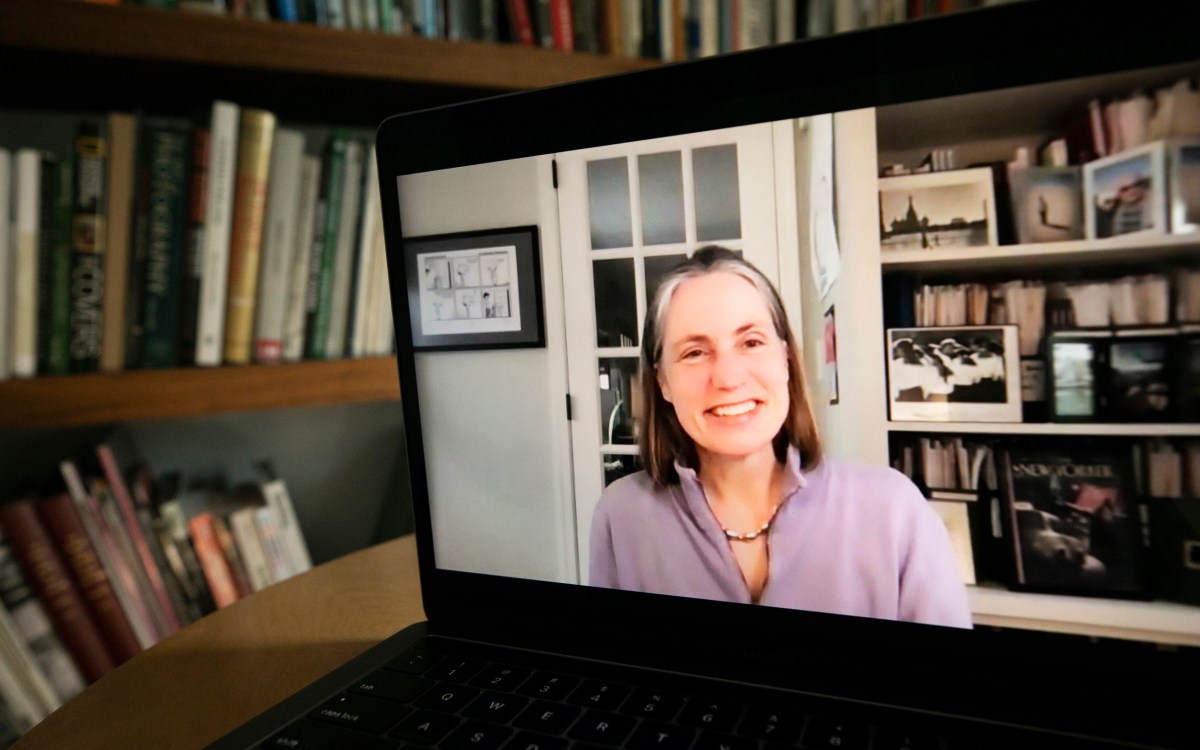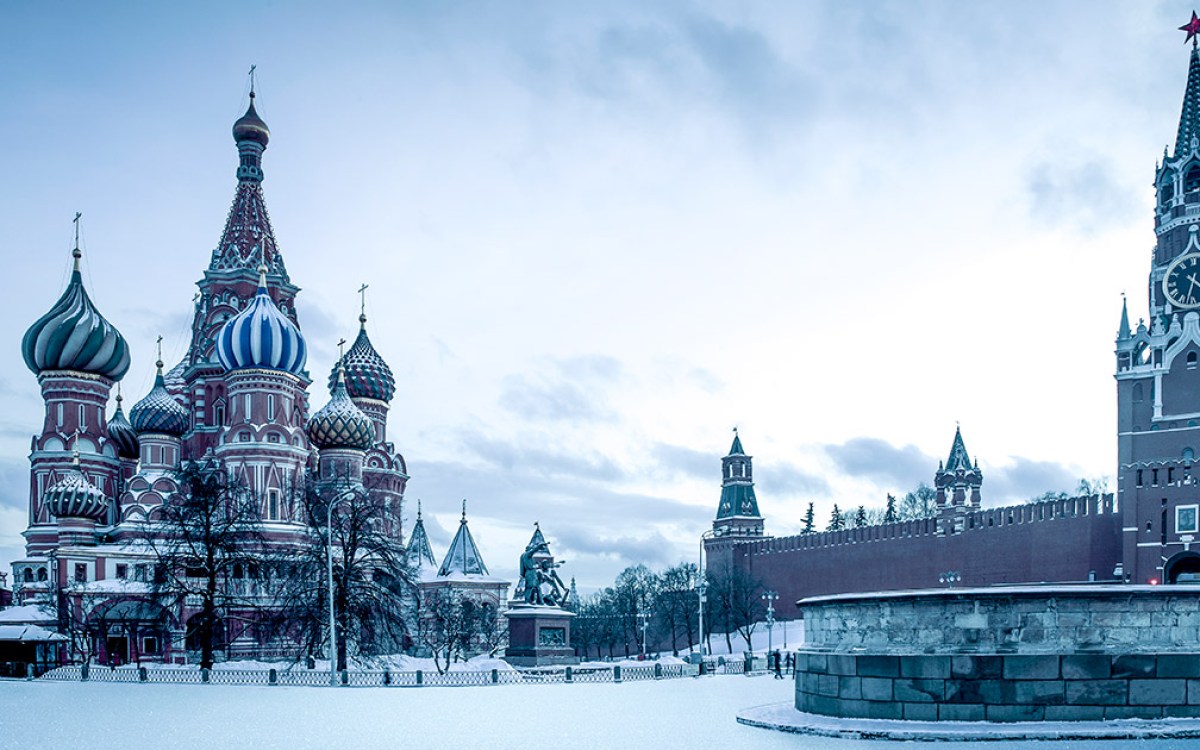
“I always enjoyed my private conversations with Putin because I could be brutally frank with him … But it was clear his model for Russian greatness was basically the czars,” former President Bill Clinton (left) told Harvard Kennedy School’s Nicholas Burns.
Rose Lincoln/Harvard Staff Photographer
Clinton reflects on foreign policy triumphs and challenges
Former president discusses Russia, China, North Korea in inaugural Bosworth Lecture
Former President Bill Clinton is credited most often for his domestic record, accomplishments made possible largely by eight years of historic economic expansion that unfolded on his watch. But he also took a number of significant international actions — some realized, some not — that still reverberate in U.S. foreign relations today.
Clinton gave the inaugural Stephen W. Bosworth Memorial Lecture in Diplomacy in honor of the late, much admired U.S. ambassador on Wednesday. He recalled some of his major foreign policy triumphs and challenges with Russia, China, and North Korea in a conversation with Nicholas Burns, retired U.S. ambassador and Roy and Barbara Goodman Family Professor of the Practice of Diplomacy and International Relations and founder of the Future of Diplomacy Project at Harvard Kennedy School.
“I thought it was my job to try to build a world that America would be happy to be a leader in, but could no longer dominate,” said Clinton during the 45-minute talk.
Soon after taking office in 1993, Clinton began building a rapport with Russian President Boris Yeltsin, hoping to guide the communist nation toward democracy. That U.S.-Russia relationship would develop into what Burns, who was on the National Security Council staff, then a State Department spokesperson, and finally U.S. ambassador to Greece during the Clinton administration, called Clinton’s “major” foreign policy achievement.
“Russia was really important to me because it’s a great country with a storied history, and they were in bad shape when I took office,” Clinton said.
Yeltsin sought billions in U.S. aid from Clinton, with Russia too broke to pay for the withdrawal of its occupation forces from the Baltic states. Over the ensuing years, Clinton also expanded the Group of 7 to include Russia and helped secure additional relief from the World Bank and the International Monetary Fund. Clinton said he thought helping Russia, not “humiliating” it, was the best course at the time.
“Yeltsin, I think, was the best leader we could’ve gotten out of Russia at that time,” he said. “I liked working with him, and I think we got a lot done.”
“I thought it was my job to try to build a world that America would be happy to be a leader in, but could no longer dominate.”
Bill Clinton
Clinton took steps that included enlarging NATO to include the former Soviet satellites Poland, Hungary, and the Czech Republic, and pushing for Russian troops to withdraw from Poland and the Baltics. All of those moves would rankle Yeltsin’s hand-picked successor, Vladimir Putin, who rose to power six months before Clinton’s second term ended.
Not yet the authoritarian ruler he is today, Clinton said it was apparent that Putin understood U.S. politics keenly and had a very different vision for Russia’s future than Yeltsin.
“I always enjoyed my private conversations with Putin because I could be brutally frank with him, and he would be brutally frank with me,” said Clinton. “But it was clear his model for Russian greatness was basically the czars. He wanted to go back to a Mother Russia as a great, powerful country that could, at the very least, dominate its near neighbors, which you’ve seen over and over again with Ukraine.”
Clinton has taken decades of heat for spearheading the effort to get China into the World Trade Organization (WTO) in 2001. Asked by Burns where things went awry — did the U.S. simply miss something important about China at the time that it should have seen, or has China changed that dramatically in 20 years? — Clinton said, “A little of both.”
Once in the WTO, China “wanted it both ways,” said Clinton. “They wanted to be treated like a wealthy country when policymaking took place, but they wanted to act like they were still a poor country when it came to taking advantage around the edges of all the trade rules.”
President Xi Jinping’s arrival on the scene certainly changed the dynamics of U.S. diplomacy with China and created new areas of concern, like the Uighur genocide, the suppression of democracy in Hong Kong, and increasing militarization in the South China Sea.
Xi’s recent remarks about what Chinese leaders have referred to as “the problem of Taiwan” are “the most troubling,” said Clinton. “I’m afraid he’s going to make it worse by trying to solve a problem that doesn’t exist.”
The U.S. made significant diplomatic headway with North Korea during the Clinton administration. Though it did not ultimately derail North Korea’s nuclear missile program as hoped, the face-to-face meeting in Pyongyang between President Kim Jong-il and U.S. Secretary of State Madeleine Albright in 2000 was a high risk/high reward gambit that capped years of quieter talks.
“With North Korea, you have to know what you won’t do — and you have to do everything else,” said Clinton. “You just have to keep trying because their psychological problem is that no one would ever think about them if they didn’t cause trouble.”
During the Obama administration, at the request of Kim Jong-il, Clinton made a clandestine trip to North Korea in 2009 to rescue two American journalists who had been imprisoned for illegally entering the country.
Clinton said when he arrived, he asked the North Korean leader “Why me?” and Kim said, “Because when my father died, you were the first world leader to reach out to me and console me. I always had the feeling you understood us.’”
Skeptical, Clinton said he “pleaded” with Kim to work out a deal with Bosworth, who had been newly appointed by President Barack Obama as a special envoy to North Korea, but he speculated that perhaps because Kim was gravely ill at the time, “It never happened.”
Asked how the pandemic will change the view of global health, Clinton, who has worked on global health issues in recent years through the Clinton Health Access Initiative, said, “It ought to become an integral part of foreign and diplomatic policy.”
In response to COVID, nations should assume that there will be more pandemics that spread across the world, either accidentally or deliberately, and should start by strengthening and building up capacity at the World Health Organization. Once COVID is under control, the major economies should get together to plan for future stockpile needs and to develop a joint research effort that studies the effectiveness of various COVID responses in a host of countries, he said.
But the focus on global health also needs to extend beyond managing pandemics or disease outbreaks in poor countries, so it will be vital to invest in schools of public health to help train and build an international health corps that’s ready to respond.
“Next to climate change, it’s probably our most important non-traditional security problem,” said Clinton.
Bosworth, who died in 2016, was a highly respected career diplomat who served as U.S. ambassador to Tunisia, the Philippines, and during the Clinton administration, to South Korea. Known as the man who talked Philippines dictator Ferdinand Marcos into stepping down, Bosworth’s deep knowledge of the Korean peninsula led Obama to name him special representative for North Korea policy in 2009.
After serving as dean of The Fletcher School of Law and Diplomacy at Tufts University, Bosworth was a senior fellow at the Belfer Center at Harvard Kennedy School from 2013 to 2016. The newly annual lecture series will focus on foreign policy, diplomacy, and peacekeeping.






